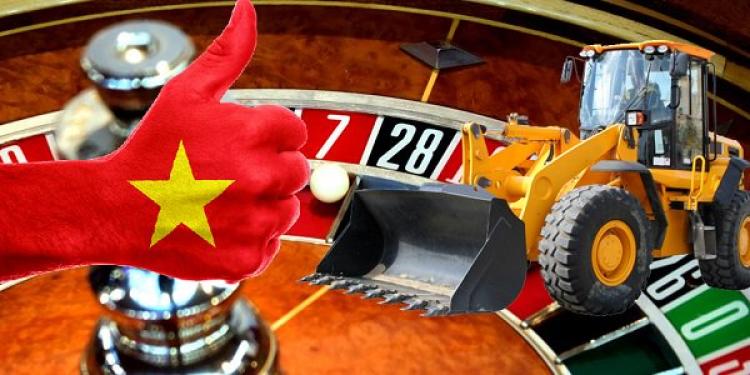Phu Quoc Bets Investors Are Ready To Rock
Posted: August 17, 2015
Updated: October 6, 2017

There are massive plans for Phu Quoc in the offing but can the environment stand even more of land dedicated tourism and is the government in Hanoi willing to give local officials the go ahead for yet another casino?
Phu Quoc looks, from the array of photos on Google at least, like paradise. Sun-bleached sandy beaches, palm trees, crystal clear blue waters, a veritable tropical delight. It’s precisely the sort of place an evil billionaire would hollow out a volcano for use as a space port, or perhaps mount his intercontinental death ray. It has become a minor hotspot of tourism in recent years and with visitor numbers up the small Vietnamese island in the Gulf of Thailand, it wants to expand.
Tropical Island Paradise
• Phu Quoc expansion plans
• Resort, casino & zoo
• Hanoi to rule land allocation
No, this does not mean Phu Quoc has some Dubai-esque plan to reclaim land from the ocean, the local authorities simply want permission from the government in Hanoi to use some more of the tropical forest and agricultural land on the island for tourism. They’ve big plans, there are investors drooling at the prospect, and with both gambling news of visitor numbers being up 20% year on year could be the start of something big for the island they’re raring to go. But it’ll cost them.
Of course the grand plans on Phu Quoc require space, and the Kien Giang province authorities, responsible for the island, have to gain permission from upon high if they wish to reallocate up to 2,000 hectares of farm and forest land to the various new projects. With so much potential revenue at stake it would seem a no brainer, however there are naturally environmental concerns, as well as the age old question, how much can you build in paradise before it stops being paradise?
Phu Quoc To Get Casino?

The plans are, naturally, grandiose, and come on the back of a decision by the government some two months back that allowed a minor growth to the area of the island already set aside for tourism, barely 3.6%, giving the total area, that attracted 110,000 visitors in the first seven months of the year, some 4,000 hectares of scope. That the Kien Giang authorities now want to boost that by a further 50% is perhaps a measure of their confidence in a favorable ruling from Hanoi.
Since Vietnamese gambling laws were relaxed to allow foreign investors to open casinos in the country back in 2003 there’s been a wave of development in the gaming sector with some fifty land-based operations now open. These cater mainly for Chinese or Taiwanese tourists given that the local domestic population is forbidden from gambling under communist laws that could see those breaking them fined or indeed jailed for their transgression.
This, however, is under review as constant reports indicate that to circumvent the ban many Vietnamese, perhaps as many as 3,000 a day, are merrily crossing into Cambodia which has far fewer qualms about who gambles. No government can afford to see revenue flow away if a minor alteration to local law can prevent it, and the opening of ever more casinos, as is planned for Phu Quoc, could indicate change is not far off.
Can Phu Quoc Net The Big Fish?

Whether the local population gets the green light to gamble or not, projects like the expansion plans in Phu Quoc are attractive to investors not simply because of the stunning vistas and gorgeous climate are great competition for online sites like Bet365, but also because the recent Chinese crackdown by Xi Jinping on some of the dubious facets of Macau’s continued presence. The prying eyes of the authorities and limitations placed on the egress of visitors from the mainland mean that some big fish are swimming elsewhere.
Whilst those that like to bet on sports in Vietnam tend towards the traditional cockfighting, the foreign visitors are likely to be catered for by a $4 billion casino project, a resort complex of the usual facilities tagged at about half a billion dollars, and a $150,000,000 zoo. It is the promise of that sort of investment that makes this awfully attractive to the Vietnamese authorities at both a provincial and governmental level, and those standard of attractions that lure in the traveling gamblers.
Phu Quoc thus has quite a bright future, and whilst there is still permission from Hanoi to await, its recent decisions mean that this may merely be formality, indeed that it is publicly discussed at all is probably a good sign all round. As the Pacific rim starts to adapt to the new landscape within the gambling sector it seems unlikely Vietnamese government will be able to resist grabbing at least part of the new reality for itself.












